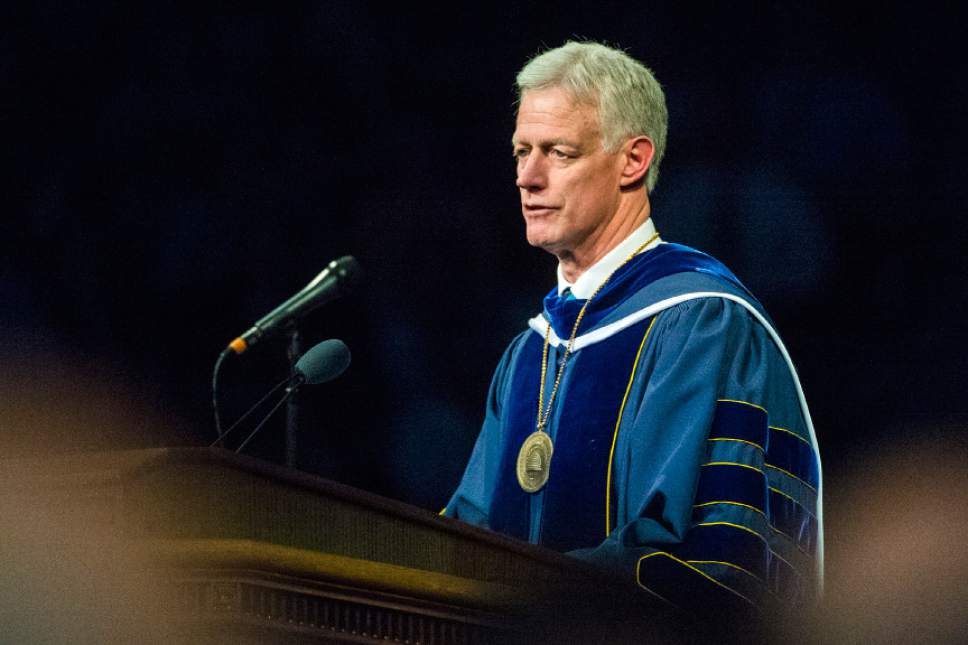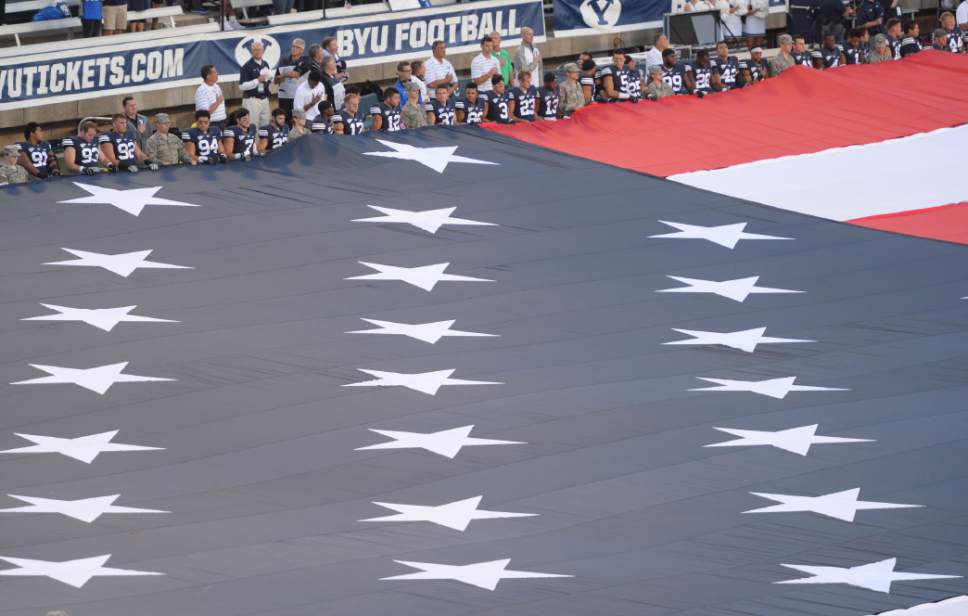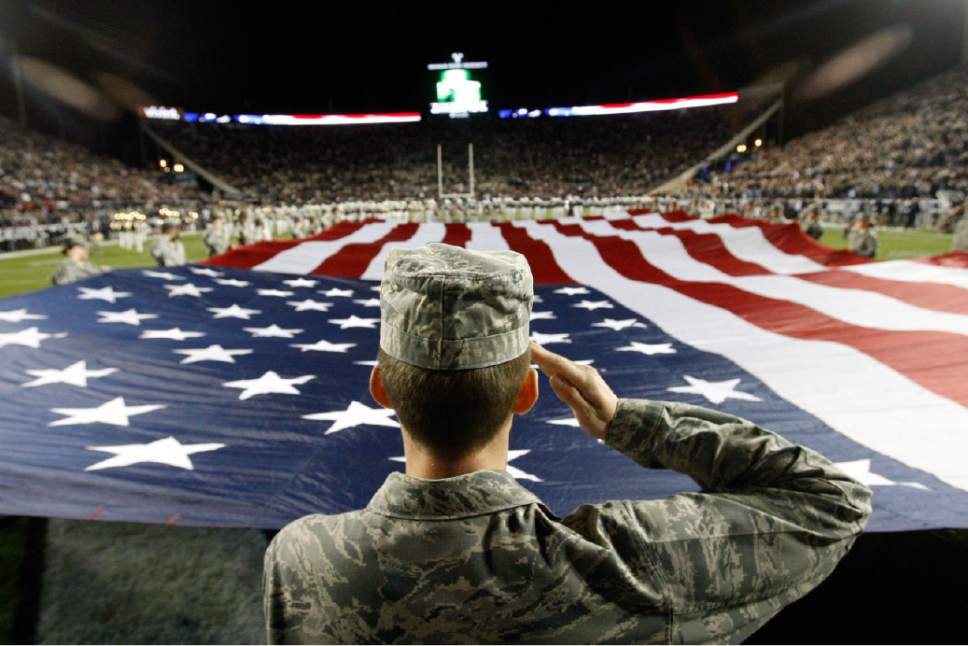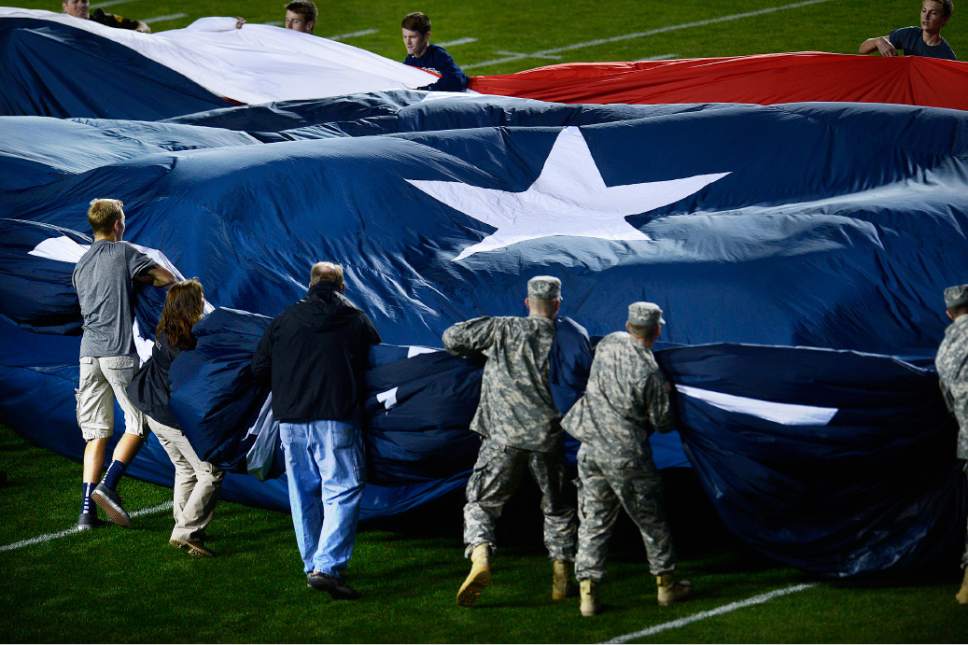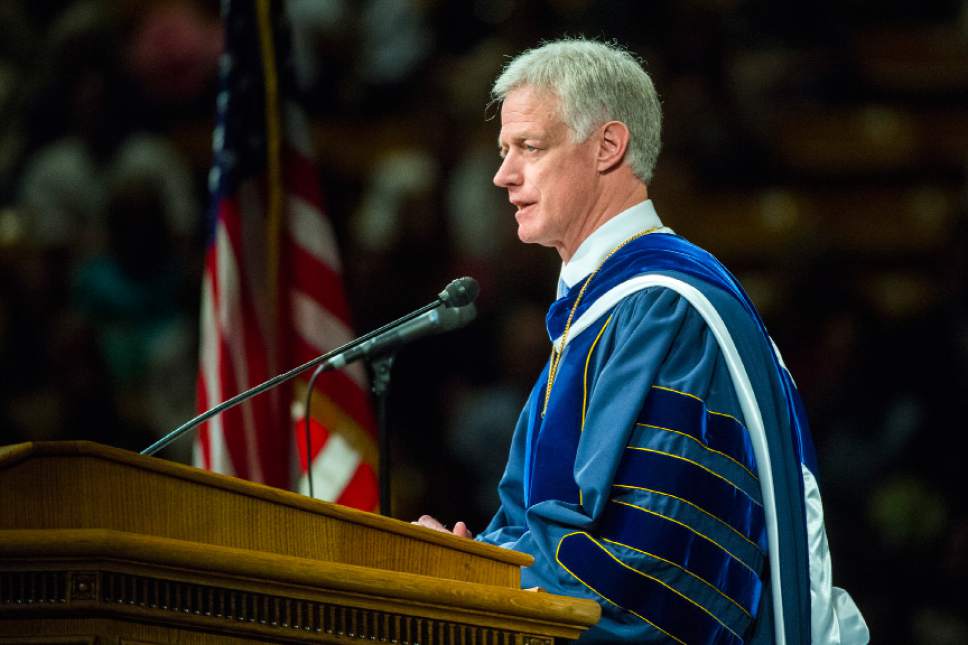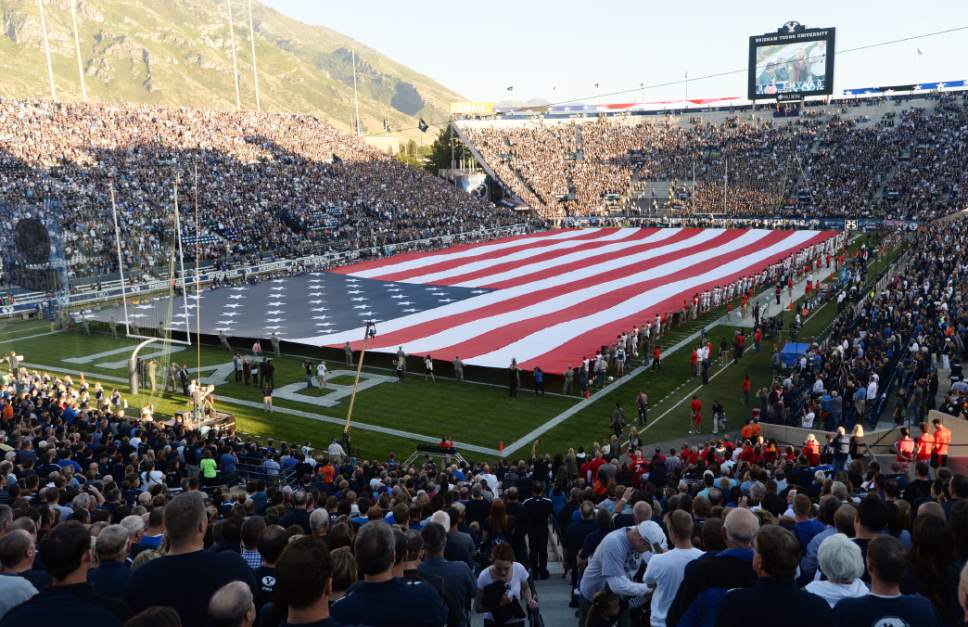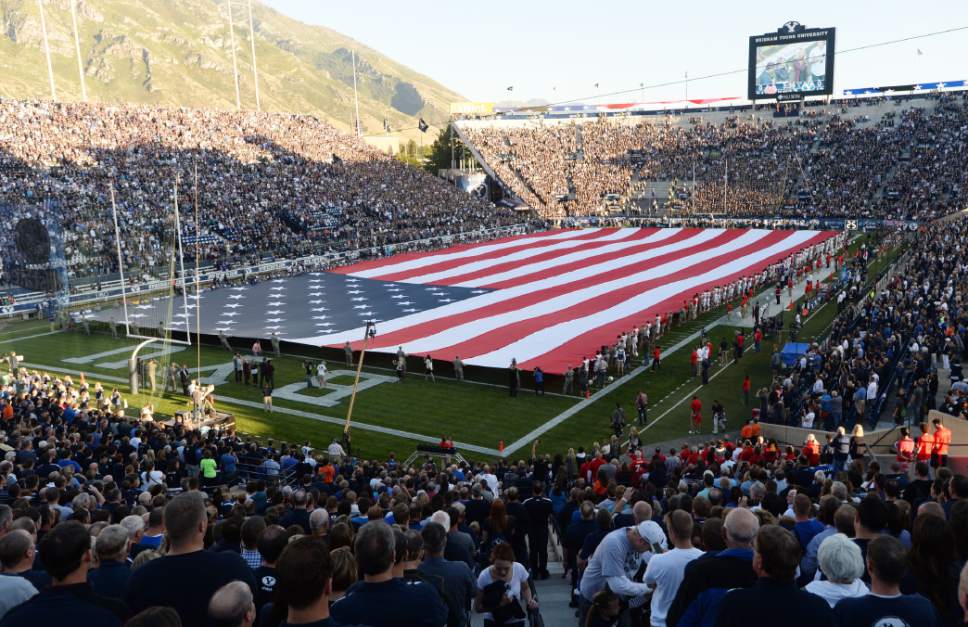This is an archived article that was published on sltrib.com in 2017, and information in the article may be outdated. It is provided only for personal research purposes and may not be reprinted.
Before discussing moving Air Force ROTC commanders off the Brigham Young University campus, Air Force representatives wanted to ask BYU's president one more time whether the school's policy on the Honor Code had changed.
No, answered BYU President Kevin Worthen in a Dec. 15 conference call that was the result of a decision by an Air Force colonel five months earlier to not sign the Honor Code.
BYU Academic Vice President Brent Webb, according to minutes of the call quoting him, added that modifying the Honor Code "would fundamentally change who we are as a university."
With that, all sides discussed moving Air Force ROTC Detachment 855 to Utah Valley University (UVU). BYU students can earn their officers commissions there.
Documents obtained by The Salt Lake Tribune show the discussions the Air Force and BYU had after Col. Timothy Hogan in July decided not to sign the campus' Honor Code, which includes prohibitions against premarital sex, alcohol, coffee and tea.
Those discussions reached the upper echelons of the U.S. Department of Defense, where at least one official was concerned about a "religious test for appointment to a military position," the documents show. The Tribune obtained emails and minutes of the conference call through a public records request sent to UVU.
Emails suggest that the Army also has plans to move commanders of its ROTC program from BYU to UVU, too. But an Army officer at UVU on Wednesday said the Army has issued no such orders.
"If we receive an official military document that says, 'You're moving,' then we'll action it," said Maj. Toby Adamson, commander of Cougar Battalion B Company, Task Force Wolverine, at UVU. Adamson reports to the battalion headquarters at BYU.
Spokespeople for the Air Force and the two universities have maintained that moving the command of the Air Force ROTC program is not a certainty either, though the documents from UVU say otherwise.
BYU and UVU have shared ROTC programs for years with headquarters for the programs sitting at BYU. The documents make clear that moving the programs' headquarters 4 miles away to the UVU campus would still allow BYU students to participate.
BYU will waive Honor Code requirements for one year for visiting professors, but Hogan's assignment from the Air Force is for three years.
BYU spokeswoman Carri Jenkins wrote Wednesday in an email to The Tribune that Hogan has been working from UVU while the universities and the Air Force discuss the matter.
"If the Air Force decides as a matter of policy that it cannot allow those assigned to BYU to agree to abide by any provision of the honor code that is not independently required by Air Force regulations, we would be at an impasse and would support moving the detachment to UVU so our students would still have access to the program,"Jenkins wrote.
Air Force personnel began visiting UVU in August to inspect buildings capable of housing the programs, emails from UVU show.
The records suggest BYU had ongoing discussions with the Air Force that also reached staff of then-Secretary of Defense Ash Carter at the Pentagon, though there is no indication Carter himself entered into the talks.
That led to the Dec. 15 conference call with Worthen, Webb and personnel from Air Force headquarters and Carter's office. While refusing to modify the Honor Code for Hogan or other military personnel, Worthen did say BYU would be willing to allow those personnel to lead drills and physical training on campus and give guest lectures, the minutes show. The Air Force later sent those minutes to UVU.
Worthen and Assistant Secretary of the Air Force Gabe Camarillo also discussed updating Utah's congressional delegation to make sure they were OK with moving the branch's ROTC headquarters to UVU, the minutes say. Congressional approval is not required for the Air Force to make the move.
On Jan. 12, an email sent by a Pentagon official responsible for recruitment and promotion of military personnel said the Army and Air Force had reached an agreement with Worthen and Webb to move both ROTC programs to UVU.
"This approach preserves the ROTC presence on campus and it's [sic] continued, valuable participation in the ROTC program while avoiding any conflict of a religious test for appointment to a military position," wrote Stephanie Miller, then the director of Military Accession Policy.
About three hours later, another email sent by an Air Force brigadier general (one star) to two major generals (two stars) and two lieutenant generals (three stars), and later forwarded to UVU, said moving the Air Force ROTC program to UVU "is on track."
That email also implied that moving the Army ROTC commanders to UVU was in motion.
"Army is looking for a longer transition window" for the move than what the Secretary of Defense had sought, Air Force Brig. Gen. Steven Garland wrote. Garland didn't specify what those differing schedules are or were.
As word of the Air Force move spread in January, the student newspaper UVU Review began reporting on it and quoted Hogan as saying the decision to move had been made. Other news outlets began to follow the story.
The military and UVU then began to coordinate their message that no such decision had been made. One email dated Jan. 27 copied the brigadier general who oversees the Air Force's officer training; the colonel who used to command the BYU ROTC Detachment and now oversees Air Force ROTC programs for the Northwest region of the United States; two more colonels, a lieutenant colonel and civilian staff in the Office of the Secretary of Defense; and UVU President Matthew Holland.
All parties agreed to refer journalists to a statement provided by the Defense Department that stressed the sides were cooperating to provide a military education for students enrolled in ROTC.
Hogan, an Air Force Academy graduate who went on to fly an A-10 attack jet, was copied on the emails discussing the talking points. He sent replies acknowledging receipt.
He signed the emails with his call sign, "Raptor."
ncarlisle@sltrib.com
Twitter: @natecarlisle


